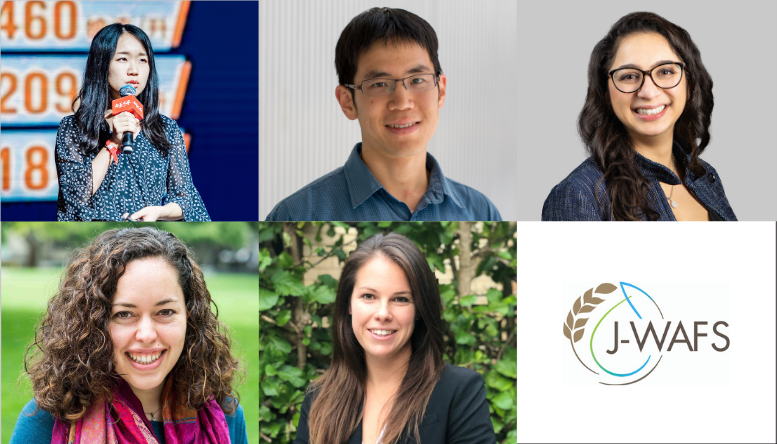News MIT Alumni Tackling Global Challenges in Water and Food
These MIT alumni, all once supported by J-WAFS, found their passion for water and food systems challenges at MIT and are now translating it into impactful water and food sector careers
Oona Gaffney Abdul Latif Jameel Water and Food Systems Lab October 6, 2020

Students entering MIT bring creativity, ingenuity, a thirst for knowledge, and a desire to apply this knowledge to real-world challenges. While some come in with a firm idea of the sector in which they wish to make change, many who arrive build relationships with faculty, peers, and departments that help them hone in on a particular sector to which they can apply their expertise after graduation. Among the sectors that MIT is currently most known for are information and technology, energy, finance, national defense, and health care and pharmaceuticals. However, the Institute has also emerged as a leader in the water and food sectors, with researchers across MIT departments, labs, and centers who develop both technical, economic, and policy solutions to the world’s most pressing water- and food-related challenges.
A growing number of faculty members are applying their knowledge to water and food challenges across the world as MIT students increasingly become aware of and motivated by water, food, and agriculture research topics. A community of researchers is supported—financially and otherwise—by various programs of the MIT Abdul Latif Jameel Water and Food Systems Lab (J-WAFS), and many have launched exciting water- and food-related careers as alumni, continuing to pursue transformative solutions to water and food problems outside of MIT.
This spring, Oona Gaffney, J-WAFS’ communications and project assistant, (virtually) sat down with five MIT and J-WAFS alumni to find out more about their career journeys. Not all of them came to MIT to pursue water and food sector research, but all of them encountered experiences and opportunities while at MIT that set them on a course toward leadership in these areas once they graduated. Follow the links below to find out more about each student’s career journey and the water and food systems challenges that drive their passion and work.
MIT, a Food, Water, and Agriculture Research Hub
Many people may not know that MIT was originally established as a land-grant institution to promote education in agricultural and technical subject areas. While MIT has predominantly earned its distinguished reputation as a hub for innovations in health, energy, finance, and information and technology sciences, the Institute also boasts an abundance of research on innovative high-tech and low-tech water and food sector solutions.
Across campus, members of the MIT community have found a wide variety of impactful ways to address these food- and water-related challenges. In many cases their work is supported by an expansive network—student groups, academic departments and research centers such as J-WAFS, innovation and entrepreneurship opportunities, and more—that has helped to advance and amplify water and food systems research here. As a coordinator, funder, and initiator of water and food systems activities on campus, J-WAFS is an important and central node. Through learning, networking, and funding opportunities, J-WAFS and others across MIT are helping students to discover and nurture their passion and interests in tackling complex, challenging, and engaging problems affecting food and water.
Involvement in J-WAFS-supported projects and activities sets students on a course toward continued and, in some cases, life-long leadership in the water and food sectors. J-WAFS’ support and guidance for students and faculty nourishes some of the best and the brightest at MIT. Whether through technology commercialization, finance, policy work, or academic careers, MIT alumni are advancing solutions to support access to clean water and sustainable food systems around the world.



